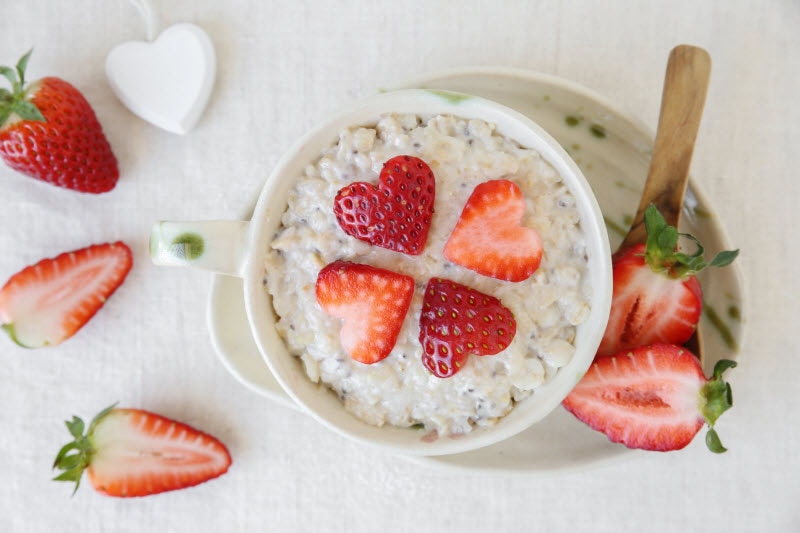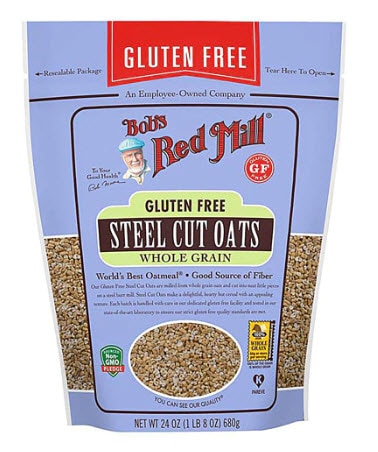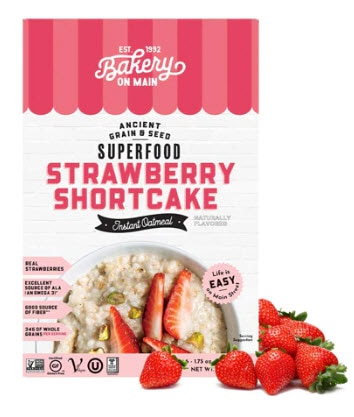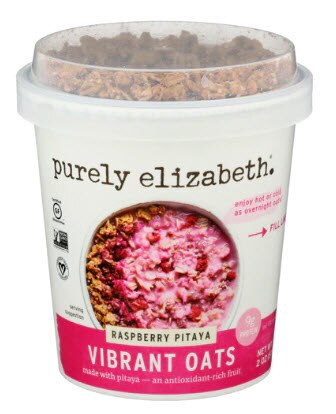Do you love oatmeal? You aren’t the only one. While this tasty, whole-grain breakfast food isn’t new on the scene, it is still garnering attention as one of the most nutrient-dense whole grains available.
Doctors, dietitians and nutritionists sing oatmeal’s praises. But why? We’ve asked a few experts to break down oatmeal’s connection to heart health. They even gave us their tips on creating a crave-worthy bowl of oats. Here are some reasons why professionals love oatmeal for its many health benefits.
4 Benefits of Oatmeal
It’s linked to overall healthier eating.
Eating oatmeal is linked to a higher intake of key food groups and nutrients than other breakfast foods. And there are reasons why.
Sylvia Meléndez-Klinger, DBA, MS, RD, of Hispanic Food Communications and co-author of the Hispanic Family Nutrition Counseling Kit, says, “oatmeal’s subtle flavor profile makes it a versatile grain that can be added to sweet or savory recipes. But what makes oatmeal even more desirable is the number of science-based benefits it offers. Simply eating a bowl of oatmeal topped with fruit or chopped nuts (for extra added nutrients) or adding it to your recipes provides whole-grain goodness, an excellent source of dietary fiber (3 grams per serving) to name a few.”
It’s loaded with heart-healthy fiber.
Fiber is needed for colon health and reducing constipation. But it offers other benefits too.
“Since oatmeal is high in fiber, particularly beta-glucan soluble fiber, it is great for heart health and reducing cholesterol. The fiber in oatmeal can also help with managing blood sugar and insulin response, as well as digestion and satiety,” says Sarah Schlichter, MPH, RDN, registered dietitian nutritionist with Bucket List Tummy.
Beta-glucan serves many purposes, including “increasing the excretion of cholesterol-rich bile and change in oxidation of LDL cholesterol that reduces the bad cholesterol,” notes Dr. Nitin Bhatnagar, MD, practicing cardiologist, holistic heart doctor, inspirational author, life architect and metaphysician with Wheels of the Mind.
“Oats also help the immune system, namely neutrophils (white blood cells) and increase the growth of good bacteria in the digestive tract,” Bhatnagar notes.
It’s rich in anti-inflammatory antioxidants.
According to Schlichter, “Oatmeal is high in phytonutrients and antioxidants, which can help reduce the risk of chronic disease and reduce inflammation in the body.”
Bhatnagar adds that this includes antioxidants called avenanthramides, which are unique to oats. “Avenanthramides reduce the risk of cardiovascular distress. These antioxidants also lower blood pressure levels by increasing the production of nitric oxide that dilates the blood vessels.”
It provides a wealth of vitamins and nutrients.
Oatmeal’s nutrient content is also worth noting. “Oatmeal is high in several micronutrients, such as iron, copper, manganese, magnesium, zinc and B vitamins. Compared to other grains, they are also higher in protein and fat to help with satiety and fullness,” says Schlichter.
How to choose oatmeal
With so many benefits of oatmeal, you might be excited to start adding more oats to your diet. But are there any things to look out for?
Naturally gluten-free, oatmeal is beloved because it doesn’t take much processing to use the grain, and you can easily use it in its whole form. But, not all oatmeal is created the same.
Additives like sugars, salt and preservatives can be harmful, causing inflammation and added health problems. Try to keep your oatmeal free of these ingredients. Instead, go for as little processing as possible. Make oatmeal yourself with overnight oats, rolled oats, steel-cut or even instant oats when short on time. But steer clear of the prepackaged varieties that contain additives.
Opt for natural sweetness in the form of your favorite spices, berries, fruits, nuts and seeds, or try adding a small amount of a natural sweetener such as maple syrup, raw honey or stevia.
How to eat oatmeal
Schlichter shares her favorite ways to enjoy oatmeal. “Enjoy a hot cup of oats, overnight oats, oatmeal in baked form, or you can even enjoy it in snack bars, no sugar added cookies and bites.”
When it comes to oatmeal, Meléndez-Klinger thinks outside the box. “I use oatmeal in sweet as well as savory dishes. From pancakes, overnight oats, breads, scones to meatloaf, burgers, stuffing, baked fried chicken, salmon patties, etc. Oatmeal blends so well with many recipes.”
If you’re a parent looking to add more oats to your children’s diet, these recipes can be great for kids. Introduce variety, playfulness and toppings! Create toppings bars where they can add their own additions. And get them in on the decision-making. They’ll love being part of meal prep.
“I have oatmeal with flaxseed, chia seed, cacao, granola, blueberries almost every morning. A nutritious start to the day. I recommend this balanced meal to all my patients at least several times a week due to the overwhelming nutritional and heart-healthy benefits and long-term cardiovascular risk reduction,” says Bhatnagar.




